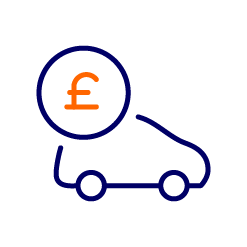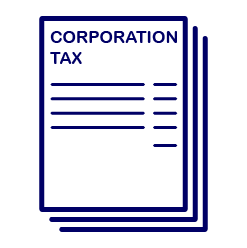Fleet Car Leasing
Increasingly a popular business decision here in the UK, leasing of a Company Car and/or Company Commercial Vehicle is a viable alternative to purchasing as companies look to get the very best value when it comes to economy as well as brand image.
Use of vehicles to deliver goods, or to get employees from one place to another (such as sales representatives to client meetings) means that companies will require any number of cars or vans, with small businesses operating fleets of between 1 and 25 while larger organisations such as police departments, councils or government offices may require hundreds, or even thousands.
This is known as Fleet Leasing.
Fleet leasing
Fleet leasing is most certainly a very viable option to purchasing company vehicles outright, especially when companies do not have the finances.
It's convenient, it's cost-effective and thanks to luxury car leasing, it can make your company look good with constantly up-to-date new vehicles. It's also a great employee perk that can help you attract the best talent, offer a slightly reduced salary, and ensure safe, overnight parking; and it's a way of financing your business fleet that is easy with little or no hassle.
With all the problems inherent in car ownership and car disposal taken away from you, and the added bonus of a continual update of models once the car leasing period is up, excusive business lease deals in stock for quick delivery, tailored programs and management services offer the complete service.
Starting with the initial consultation where you are guided through what to expect, your journey through the whole process including funding, supply, management and, finally, disposal is made as easy as possible with minimum interruption to your daily routine.
Different vehicle finance options
Obviously, as you are entering into a big financial commitment when it comes to business vehicles, car leasing hire helps you spread the cost rather than splash out a lump sum, and with this in mind there are different financial methods when it comes to splashing the cash.
Each method allows you to consider alternatives depending on whether or not you want to keep the vehicle at the end of the car lease deal; or maybe you wish to pay low rental costs with a final large payment at the end. Fleet funding is tailored to the type of business and the requirements of that business. (For example: the financial method chosen can allow you to release any capital or can help you reduce your tax liability.)
Finance options include: Contract Hire, Finance Lease or Outright Purchase.
Contract hire
Contract Hire does what it says on the tin: instead of 'buying' the vehicle over the term of the lease, you actually pay to use someone else's vehicle (in this case, the leasing company's).
Ideal for a minimum of fuss solution for the smaller fleet, you enter into a tailor-made agreement that includes fixed monthly payments, and is based upon the size of your initial deposit and the estimated mileage (amongst other things).
Benefits of Contract Hire

No large initial outlay of capital
At the start of the lease, you can put down as little as three month's advance rental as a deposit as opposed to a large deposit when purchasing a car.

Fixed monthly payments
You'll know exactly what you are paying out each month in one bundle, allowing you to accurately forecast your cash flow.

Balance sheet benefits
Because you don't actually own the car or van, it does not appear on your company’s Balance Sheet. This in itself is a benefit as it allows you to show a better set of accounts to any potential investors, lenders or buyers, and also reduces tax liability.

External Administration
All admin on the vehicle is the responsibility of the leasing company, improving your company's efficiency, and saving you both time and worry.

Vehicle excise duty and roadside assistance
Vehicle Excise Duty (also known as Road Tax) is the responsibility of the leasing company.

No risk of depreciation
With most vehicles losing up to 60% of their value over 3 years, you have no worries when it comes to depreciation - THAT is the concern of the vehicle's owners; you are just leasing it from them!

No 'selling before buying'
At the end of the lease, all of the hassle that you normally have with purchased vehicles when it comes to disposal is taken away from you. No part-exchanging to get a newer vehicle; no selling the vehicle off before you can get another one. Just a brand new one ready to use if you continue your leasing agreement.

Full maintenance cover
When it comes to the fixed monthly payments, alongside the leasing costs, these can include a Maintenance Contract and Roadside Assistance, allowing you to budget accordingly with no financial surprises.

Tax & V.A.T
When it comes to lease rental payments, you can claim up to 100% tax relief. When it comes to VAT payments, you can reclaim 50% on cars and 100% on commercial vehicles, with 100% of the VAT on the maintenance elements also reclaimable.

Corporation Tax Savings
You can claim as much as 100% of the lease rental against corporation tax based on CO2 emissions. At time of writing, for cars up to 130g/km the rate is 100%, and for cars above that 85%.
Finance lease
Only available on Commercial Vehicles, with a Finance Lease agreement, once again as a company you never actually own the vehicle, but you do own the value of the vehicle. Finance Lease allows you to pay the entire cost over the period time of the lease, but with this you have a final payment due at the end of the lease contract - this payment is sometimes referred to as a balloon.
The size of this final rental payment is entirely down to the company (in agreement with the leasing company) as the lower the agreed monthly rental costs, the higher the final payment. With the vehicle actually appearing on your company's balance sheet as an asset, you will need to look at your cash flow requirements when calculating payments with your leaser.
Benefits of Finance Lease

Flexible payments
These can be arranged and agreed to suit your company's cash-flow and budgeting requirements.

No major capital outlay
As with Contract Hire, you can put down as little as three month's advance rental as a deposit as opposed to a large deposit when purchasing a vehicle.

Recovery of VAT
Subject to certain restrictions, when it comes to lease rental payments, you can claim 100% of VAT payments on commercial vehicles, with 100% of the VAT on the maintenance elements also reclaimable.

Taxable profit outset
When it comes to taxable profit, the complete cost of the rental can be offset against it.

No mileage restrictions or penalties
Unlike in a Contract Hire Lease agreement, mileage is not restricted, but it should be noted that excess mileage will affect a vehicle’s value at the end of the contract.

Extension of use
Once the contract has finished there is the option to continue to use the vehicle at an agreed rate rather than enter into another lease with a new vehicle.

Balance sheet advantages
The vehicles on the lease are shown on your company's balance sheet as an asset, meaning that the value of your company's assets are increased - ideal for companies that want to increase their assets.
It is important to know that, at the end of the contract, when it comes to disposing of the vehicle, there may well be a discrepancy between the value and the amount paid.
If the final asset value is more than the final balloon payment, you will get some credit back, either in the form of a payment or credit against the next lease; but if it is less, you will be expected to pay the balance.
Outright purchase
Contract purchase is a finance agreement for VAT registered companies and businesses that want to own their vehicles but want to avoid the risk of depreciating assets.
With an Outright Contract Purchase, having paid the initial deposit, your company pays fixed monthly installments for the vehicle (with these payments NOT subject to VAT.)
At the end of the contract, your company has the option to purchase the vehicle at an agreed price following payment of the agreed balloon cost and any discrepancy in value.
Benefits of Outright Purchase

Fixed monthly payments
These do not include VAT (although VAT is payable on any optional service or maintenance packages.

Own the vehicle outright
At the end of the contract, you can take ownership of the vehicle with no third party involvement. Or you can decide not to, and hand it over to the leasing company

Maintenance contract
A contract for agreed maintenance costs can e added to your monthly payments. This gives you more peace of mind as well as close control of your finances.

Balance sheet advantages
The vehicles on the lease are shown on your company's balance sheet as an asset, meaning that the value of your company's assets are increased.

Taxable profit advantage
The value of the vehicle can be written down against taxable profits
Vehicle management
When it comes to helping with the management of your fleet, we are on hand to make sure that all the hassle is taken away from you. We look after things such as:
- The purchase of new vehicles
- Delivery of the vehicles
- Roadside assistance
- Maintenance, service and tyre replacement (as part of optional contracts)
- Manufacturer warranties
Outsourced fleet administration
We understand that fleet management is a time-consuming activity, so a fleet management outsource facility can be arranged. For an agreed cost, this can include (amongst other benefits):
- Arrangement and booking of vehicle servicing
- Dealing with any traffic infringement notices that may be accumulated
- Replacement notification to drivers
Our process
Once you have chosen the type of vehicle (or vehicles) that you require for your fleet, agreed your quotation, and have been accepted for finance following a finance check, our simple 8 Step Leasing order swings into action:
- Your vehicle is ordered with one of our supplying dealers
- You will receive an email to confirm when your vehicle is expected to arrive with our supplying dealer
- Finance documents are emailed to you by our administration team
- An email will be sent to you to confirm receipt of signed documents
- Once your vehicle is with our supplier, a member of our administration team will contact you to arrange a convenient date and time for delivery
- Upon delivery you will be required to sign a vehicle acceptance note
- Enjoy your brand new car!
Please note that you are responsible for arranging your own insurance on any leased car or van. This must be a fully comprehensive insurance policy and the hirer obtaining finance must be the main policy holder on the insurance certificate. Please make your insurance provider is aware that this is a lease vehicle and that the registered owner and keeper of the vehicle is the finance company.
Approximately four to six months before your leasing contract is due to expire, our renewals team will be in touch to discuss your renewals options.
Vehicle Disposal
When it comes to the end of the contract and the vehicle is returned to the leasing company (assuming that you have not decided to keep the car as part of your contract), there are no hidden charges when it comes to disposal, as all vehicle disposals are made in accordance with BVRLA guidelines on fair wear and tear.
Exclusive deals for small, medium and large businesses (best value)
To discover what new car finance deal is best for your company, and to discuss just how UK car leasing company Nationwide Vehicle Contracts can help you with your Fleet Car Leasing needs, contact us by clicking the link here.
Guide Information
Originally published: 16th January 2018
Last updated: 7th June 2022
